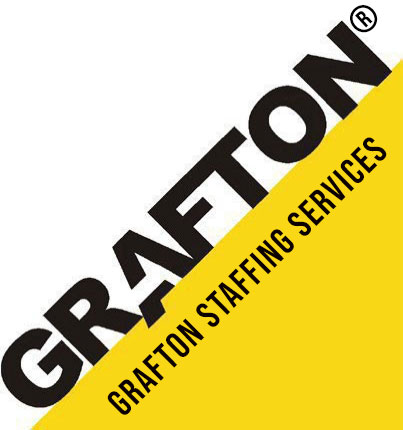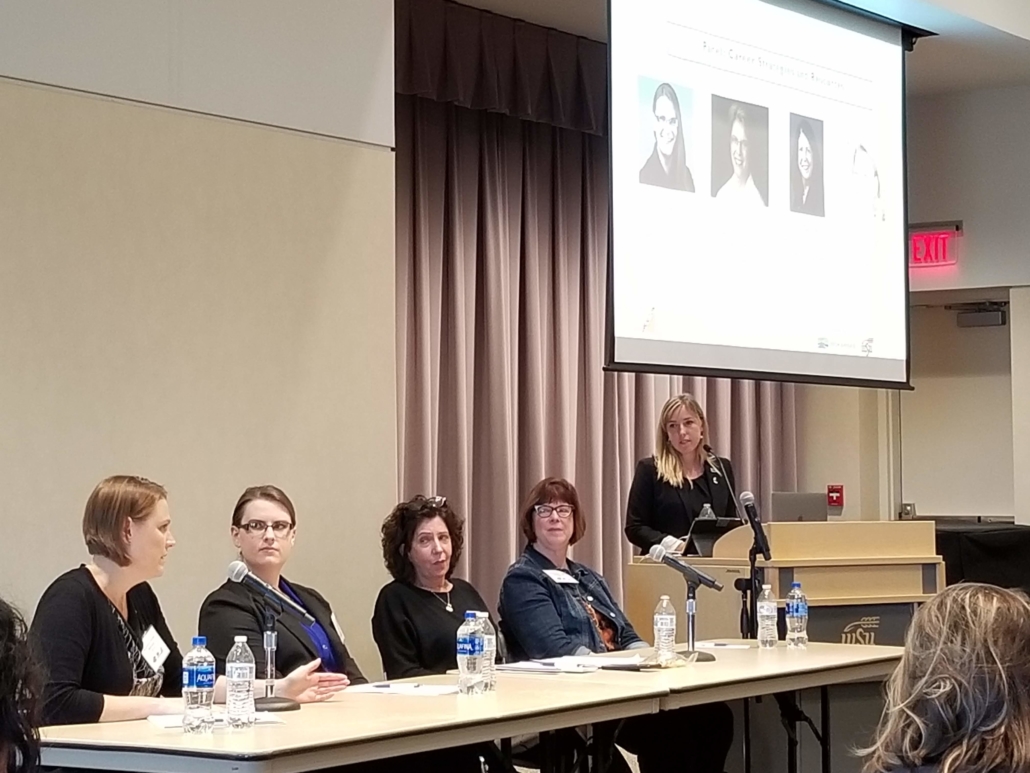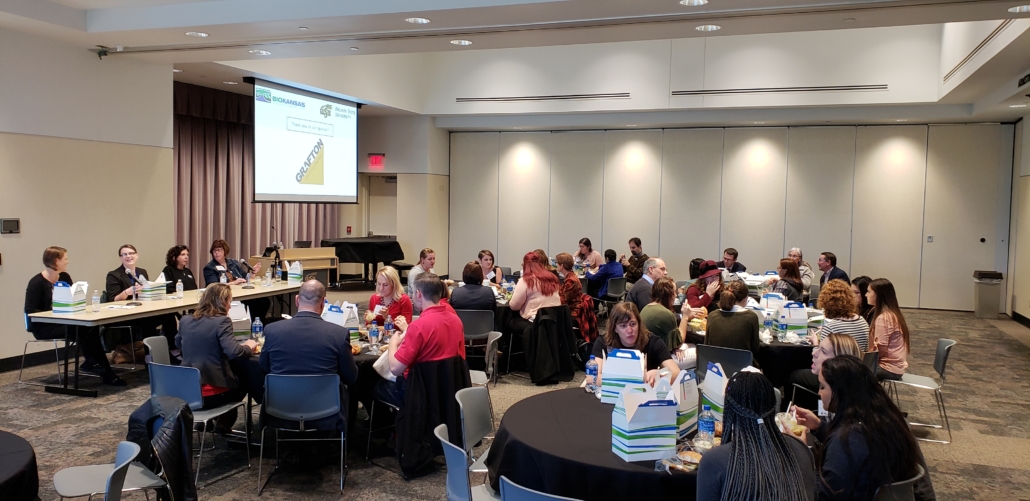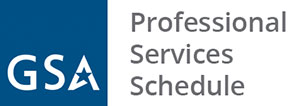Distractions at work: The good and the bad.
By Scotti Mizner – Senior Recruiter at Grafton Staffing
 Everyone has been distracted at least a couple times while at work. The casual conversation, a “ding” on your phone which causes you to read the newest alert, or some app on your phone that you get lost in for twenty minutes. With the advance of technology and smart phones, the list could really be endless for distractions in our daily lives.
Everyone has been distracted at least a couple times while at work. The casual conversation, a “ding” on your phone which causes you to read the newest alert, or some app on your phone that you get lost in for twenty minutes. With the advance of technology and smart phones, the list could really be endless for distractions in our daily lives.
Are all distractions bad?
We have all been in that place where you are working your hardest and not making progress. It’s frustrating. You’re not sure what else could be done to reach your goal. Maybe you are ready to throw in the towel and see who else can pick up your slack. You end up walking away from your desk, chatting with a co-worker, refilling your coffee, and doing anything other than what you are supposed to be doing at the moment.
You sit back down. Twenty minutes go by and all of a sudden something clicks. You use a different approach, and BOOM! You accomplished what you had been stuck on for the last three hours. Sometimes, walking away and taking a break can show you an angle that you hadn’t seen before. Maybe the distraction is what you needed at the moment.
On the other hand, you can also have distractions that eat up your day.
These don’t benefit you or your company. You find yourself reading the latest trending topic, then that branches out to another topic, then another. Now forty-five minutes have passed and you aren’t sure what you even read about.
To eliminate these distractions, you have to take stock of what is distracting you. Was it your phone or a co-worker?
By understanding what distracted you, you can start to put in place behaviors and habits to avoid those distractions. Was it your phone that distracted you when a notification went off? Turn off your notifications while at work. Then allow yourself to manually check your normal phone apps, but with a certain cut-off time, if your work allows.
Did you get stuck chatting it up with Kathy in the office? Two options there. Either avoid Kathy’s office like the plague (potentially offending to Kathy, just a heads up) or limit the time spent inside Kathy’s office. Go into her office with a plan of what business needs to be talked about, and set a time limit. If the business talk lasts the whole time, sorry Kathy, we can chat at lunch.
So… while distractions get a bad reputation, it’s the type of distraction and how we let it affect our day that can be the difference between a bad distraction, or maybe a good one. It is all about how we use the distraction to our advantage, and limiting the time spent on distractions. We must use our distractions and stay productive, instead of just wasting time counting down until the end of the day.
The longer you spend with a distraction, the longer the day is, and the less gets accomplished for the day.

 I recently celebrated my nine year Rotary anniversary. I remember going to the first meeting and feeling isolated and alone. Picture me walking into a room full of nearly 70 other people I didn’t know. Starting a conversation with people you don’t know can be an intimidating experience. It’s still a fear of mine, but here are a few tips I’ve learned along the way.
I recently celebrated my nine year Rotary anniversary. I remember going to the first meeting and feeling isolated and alone. Picture me walking into a room full of nearly 70 other people I didn’t know. Starting a conversation with people you don’t know can be an intimidating experience. It’s still a fear of mine, but here are a few tips I’ve learned along the way. As much as we like to play hero and accomplish things individually, we all run into situations and careers that don’t always allow that to happen. It’s a good thing because anyone can use help no matter what the situation is.
As much as we like to play hero and accomplish things individually, we all run into situations and careers that don’t always allow that to happen. It’s a good thing because anyone can use help no matter what the situation is. Not only do the recruiters count on the account managers to get every little detail right, but they also have to be able to count on the recruiters to find the talent for their client’s needs. To us, teamwork means a lot more than a typical business. It’s vital that we have open communication and work together to find solutions to the things that Google can’t seem to give us the answers to.
Not only do the recruiters count on the account managers to get every little detail right, but they also have to be able to count on the recruiters to find the talent for their client’s needs. To us, teamwork means a lot more than a typical business. It’s vital that we have open communication and work together to find solutions to the things that Google can’t seem to give us the answers to. I think overall there has been an increase in a lack of sense of urgency in our culture. We relax and put things off. But we need to move things forward whether it be in our personal lives or our business lives. The lack of sense of urgency can lead to things like procrastination which is a part of human nature that I think everyone has experienced at some point.
I think overall there has been an increase in a lack of sense of urgency in our culture. We relax and put things off. But we need to move things forward whether it be in our personal lives or our business lives. The lack of sense of urgency can lead to things like procrastination which is a part of human nature that I think everyone has experienced at some point. First off, thanks to all our partners and employees in 2018. I enjoy this time of year. It’s great time to reflect and appreciate all the people who’ve influenced you. Change is a part of every organization, and Grafton saw plenty of change last year. I believe we made a few changes in 2018 that will help us achieve greater success in 2019.
First off, thanks to all our partners and employees in 2018. I enjoy this time of year. It’s great time to reflect and appreciate all the people who’ve influenced you. Change is a part of every organization, and Grafton saw plenty of change last year. I believe we made a few changes in 2018 that will help us achieve greater success in 2019. Grafton has always been bigger than most people realize. Based on revenue, Grafton is in the top 15% of the largest staffing firms in the United States. Based on W2’s, Grafton is one of Kansas City’s largest employers. (For the most part, I’m okay flying under the radar.)
Grafton has always been bigger than most people realize. Based on revenue, Grafton is in the top 15% of the largest staffing firms in the United States. Based on W2’s, Grafton is one of Kansas City’s largest employers. (For the most part, I’m okay flying under the radar.)

 Post written by
Post written by  Don’t just know what your client produces, manufactures or sells, but gain an understanding of what goals they’re trying to achieve.
Don’t just know what your client produces, manufactures or sells, but gain an understanding of what goals they’re trying to achieve.
 Some of the most successful people I know have worked in multiple industries and/or have changed positions to have completely different roles and responsibilities.
Some of the most successful people I know have worked in multiple industries and/or have changed positions to have completely different roles and responsibilities. Here are eight tips that will help you make sure you’re proactively taking care of all of the “little things”:
Here are eight tips that will help you make sure you’re proactively taking care of all of the “little things”:

